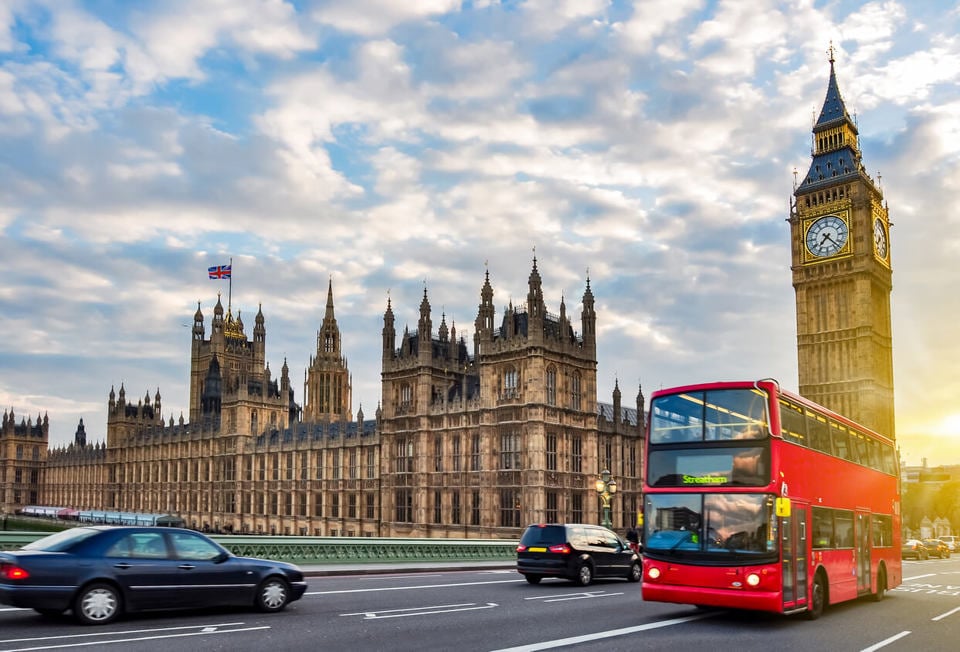The Government’s legislative plan for the next Parliament has been revealed in the King’s Speech today (Wednesday, July 17), with 39 new laws promised.
The draft laws include plans to nationalise the railways and speeding up the delivery of “high-quality infrastructure and housing”.
There was nothing about bringing forward the date from 2035 to 2030 for ending the sale of new petrol and diesel cars and vans.
There was also nothing to incentivise the the adoption of electric vehicles (EVs) in the retail sector or around charging infrastructure.
Sue Robinson, chief executive of the National Franchised Dealers Association (NFDA), which represents car and commercial retailers across the UK, said: “While The King’s Speech contains positive elements, it is crucial for the Government to address key issues within the automotive retail sector, such as restimulating the private electric vehicle market.”
A Passenger Railway Services Bill was among the 39 new laws, which will allow the Government to renationalise nearly all passenger rail services, when existing contracts expire, while a new body, Great British Railways, will be created to oversee track and trains will be established by a separate Railways Bill.
With Great British Railways, the Government says that the fares and ticketing system will see simplified fares, discounts, and ticket types.
Once established, the new body will also ensure that ticketing innovations like automatic compensation, digital pay-as-you-go and digital season ticketing are rolled out across the whole network.
Meanwhile, a Better Buses Bill will allow a wider range of local leaders to take over responsibility for running bus services.
A High Speed Rail Bill, previously tabled to build the now-scrapped northern leg of the HS2 rail link, will bring in powers to build new rail infrastructure in northern England.
The Government will also legislate to establish Skills England and will reform the apprenticeship levy.
Edmund King, president of the AA, said: “We welcome the Better Buses Bill as this could help ease congestion on roads across the country.
“We believe the Bill could improve connectivity in urban areas, especially if successful park and ride schemes, such as those in Oxford and Cambridge, can be used as a blueprint of best practice.”
He added: “With the motor industry evolving at a rapid rate with the rise of electric vehicles, connected and autonomous vehicles, it is vital that the future workforce is upskilled.
“The creation of Skills England can help encourage apprentices to the automotive sector and help unlock their potential.
“We look forward to working with the Government to tackle the priorities of drivers such as fixing potholes, delivering fuel price transparency and improving road safety.”
Matt Finch, UK Policy manager at Transport and Environment, believes that the King's Speech proves Labour is serious about making the country's public transport systems fit for the 21st century.
“This is absolutely needed, as is a renewed focus on how to decarbonise planes, trucks and ships,” he said.
“The new Government was elected on a promise to tackle climate change from all sources, including transport, and it mustn't waste any time on doing so.”
However, while the Better Buses Bill and the establishment of Great British Railways promises to ease congestion, Greg Ford, head of corporate at Red Training, said: “There was little mention of tackling Britain’s crumbling road infrastructure, nor was there any sign of moves to cut road traffic accidents, which remain stubbornly high.”
A Great British Energy Bill will also be introduced to set up Great British Energy, a publicly owned clean power company headquartered in Scotland, which aims to help accelerate investment in renewable energy such as offshore wind.
Paul Hollick, managing director of Lightfoot, said: “Accelerated investment in a clean energy future through the creation of Great British Energy is welcome, but we need to see more detailed plans and a commitment to decarbonise the UK vehicle fleet in a sustainable way.”
A new Employment Rights Bill, meanwhile, will ban the "exploitative" use of zero-hours contracts and introduce various new workers’ rights promised ahead of the election
A Race Equality Bill will also extend the right to make equal pay claims under the Equality Act to ethnic minority workers and disabled people, and bring in new pay reporting requirements for bigger firms.
Prime Minister Keir Starmer said: “Now is the time to take the brakes off Britain. For too long people have been held back, their paths determined by where they came from - not their talents and hard work.
“I am determined to create wealth for people up and down the country. It is the only way our country can progress, and my government is focussed on supporting that aspiration.
“Today’s new laws will take back control and lay the foundations of real change that this country is crying out for, creating wealth in every community and making people better off - supporting their ambitions, hopes and dreams.”
Oliver Lord, UK head of the Clean Cities Campaign, however, says the decision to omit a Clean Air Bill from the King’s Speech is “disappointing” and a “missed opportunity to end toxic air pollution, which is the UK’s biggest environmental health risk and a major cause of health inequities”.
He added: “The Government’s pledges to fix the NHS cannot ignore the fact that air pollution will cost our health and social care system billions every year unless modern day legislation is in place.
“In the absence of the Clean Air Bill, proposals set to be laid before Parliament on buses, rail and devolution provide a clear opportunity to create infrastructure and localised policy that ensures our cities can effectively and rapidly transition to cleaner forms of transport, business and governance that nurture investment and protect our health.”























Login to comment
Comments
No comments have been made yet.